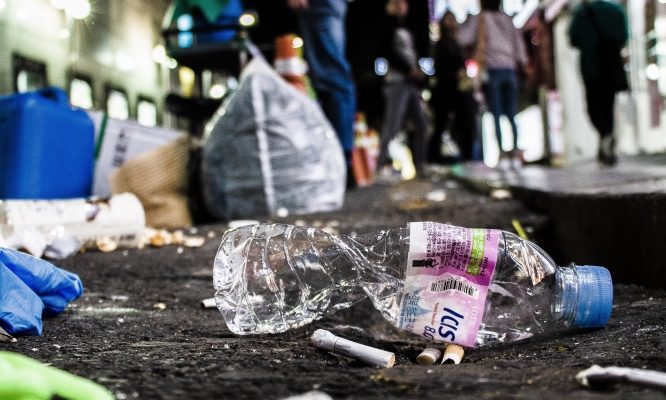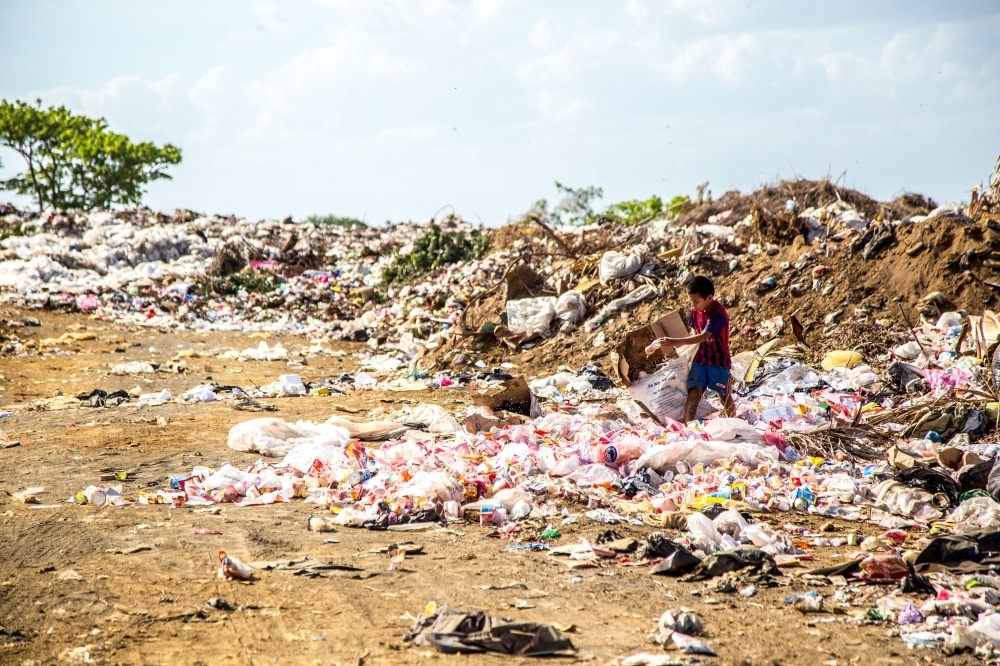Today, plastic is found in everything. From computers to mobile phone, furniture to clothing, they have made our life much easier. But everything comes with a cost, and we cannot have so many advantages of plastic without having disadvantages countering them. We have to implore on finding plastic pollution solutions to make our world a better place to live in.
A polymer is long repeating chains of molecules. We can find naturally-occurring polymers everywhere. From hair to DNA, it is pretty important to human existence. But we humans found a way to synthetically create a polymer. By breaking down crude oil into its component and rearranging them, we humans made a new type of polymer i.e. plastic.
Plastic pollution has already caused a rise in plastic waste in our solid waste. More than 8.3 billion metric tons of plastics have been produced, while 6.3 billion metric tons of it have become plastic waste. Of the waste produced, the vast majority of 79 percent is still accumulating in landfills or littered in the natural environment like land and sea. While only nine percent of plastics get recycled and 12 percent is incinerated. This means we are just mass producing plastics sans the appropriate solutions.
PLASTIC POLLUTION: ITS CAUSE AND EFFECTS
We, humans, tend to overlook the disadvantages of some product if the advantages are lucrative enough. Plastics are a prime example of this. Plastic has made so many things extremely easy for us. It is cheap, durable, light-weight, can be mass produced and can be molded into any shape. But, its rampant use has led to plastic pollution, and we need to rectify our actions soon.
The damage caused by plastic to our environment outweighs the benefit it has provided us.
The raw materials of plastic are easily available and are cheap. As easy as it is to produce and use, plastics are very hard to decompose. It takes about 500-1,000 years for plastics to decompose naturally. But we are producing plastic at the same rate and are not trying to find other possible alternatives. And that is the root cause of all problems.
About 40% of all packaging is done with plastics while the packaging wrappers take up to 1/3 of all waste produced by mankind.
Another problem with plastics is a dangerous chemical used to obtain transparency and durability. A huge chunk of plastic waste ends up in sea and oceans. Dumping of plastics has endangered marine life even more. Plastics in the sea tend to get broken down into tiny pieces. And when those tiny pieces are ingested by fishes, they can choke on it or get poisoned.
Every year, large ocean creatures wash up to shore dead. And upon inspection, it was found that their bellies were full of plastic waste. The process affects the marine food chain, ultimately creating imbalance. Meanwhile, those fishes can also end up in our dinner plates too, affecting humans too, indirectly. It sheds light to the very dire situation and calls for desperate plastic pollution solutions.
Solutions
Damage already done by plastic pollution is basically irreversible at this point. Over 8 billion metric tons of plastic still sits on the Earth’s surface. But what we can do is reduce further damage by minimizing plastic use and using three R’s or 3Rs (Reuse, Recycle and Reduce).
We first have to start Reusing the plastics that have already been manufactured and in use. Our current instinct is to use and throw plastics, but it’s high time we change the mentality. This will reduce the demand for plastics significantly.
Secondly, Reducing will also help in the process. We have to stop using plastics in our daily lives too. Either it’s for groceries or for transporting goods. Instead, use alternatives like paper bags and boxes for the same job. It will decrease the consumption and hence, will decrease the manufacture too.
Last but not least, Recycling can work as one of the effective plastic pollution solutions. That means we have to stop throwing plastics on the ground or water resources (rivers or streams) or in the dumping sites. We can just use the plastics we have in something else, like upcycling. Or use the plastics to re-manufacture and meet the demand of plastics.
All three means include plastics of all kinds. Every year, tons of plastics are scavenged from oceans. But it is really hard to clean micro-plastics that were dumped in the oceans. A lot of it has already ended up inside ocean creatures.
Time has come for us to come up with substantial and sustainable plastic pollution solutions that are effective and easy to implement. If we don’t, plastic pollution will be the end of human existence soon and the Earth too.





Leave a Reply
You must be logged in to post a comment.